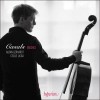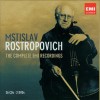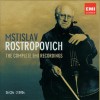Composers
David Popper (June 16, 1843 – August 7, 1913) was a Bohemian cellist and composer.
He was born in Prague, and studied music at the Prague Conservatory. He studied the cello under Julius Goltermann (1825–1876), and soon attracted attention. He made his first tour in 1863; in Germany he was praised by Hans von Bülow (who was also a son-in-law of Franz Liszt), who recommended him to a position as Chamber Virtuoso in the court of Prince von Hochenzollern-Hechingen in Löwenberg. In 1864, he premiered Robert Volkmann's Cello Concerto in A minor, Op. 33, with Hans von Bülow conducting the Berlin Philharmonic. He lost this job a couple of years later due to the prince's death.
He then made his debut in Vienna in 1867, and was made principal cellist at the Hofoper. From 1868 to 1870 he was also a member of the Hellmesberger Quartet. In 1872, he married pianist Sophie Menter, a pupil of Liszt. She later joined the staff at the St. Petersburg Conservatory. In 1873, Popper resigned from his post at the Hofoper so as to continue his tours with his wife on a larger scale, giving concerts throughout Europe. Popper's and Menter's marriage was dissolved in 1886.
That year, Liszt recommended Popper for a teaching position at the newly opened string department at the Conservatory at Budapest. In Budapest, he participated in the Budapest Quartet with Jenő Hubay. He and Hubay performed chamber music on more than one occasion with Johannes Brahms, including the premiere of Brahms's Piano Trio No. 3 in Budapest, on December 20, 1886.
Popper died in Baden, near Vienna.
Among his notable students were Arnold Földesy, Jenő Kerpely, Mici Lukács, Ludwig Lebell and Adolf Schiffer (teacher of János Starker).
It has been said by János Starker that Popper would run up a substantial bill at a local restaurant. To make up for this, Starker says that he would run home, compose a piece, take it to his publisher and use that money for the bill.
David Popper was one of the last great cellists who did not use an endpin.
Recently Added
| Country: | Czech, Austria, Hungary |
| Period: | Romantique |
Biography
David Popper (June 16, 1843 – August 7, 1913) was a Bohemian cellist and composer.
He was born in Prague, and studied music at the Prague Conservatory. He studied the cello under Julius Goltermann (1825–1876), and soon attracted attention. He made his first tour in 1863; in Germany he was praised by Hans von Bülow (who was also a son-in-law of Franz Liszt), who recommended him to a position as Chamber Virtuoso in the court of Prince von Hochenzollern-Hechingen in Löwenberg. In 1864, he premiered Robert Volkmann's Cello Concerto in A minor, Op. 33, with Hans von Bülow conducting the Berlin Philharmonic. He lost this job a couple of years later due to the prince's death.
He then made his debut in Vienna in 1867, and was made principal cellist at the Hofoper. From 1868 to 1870 he was also a member of the Hellmesberger Quartet. In 1872, he married pianist Sophie Menter, a pupil of Liszt. She later joined the staff at the St. Petersburg Conservatory. In 1873, Popper resigned from his post at the Hofoper so as to continue his tours with his wife on a larger scale, giving concerts throughout Europe. Popper's and Menter's marriage was dissolved in 1886.
That year, Liszt recommended Popper for a teaching position at the newly opened string department at the Conservatory at Budapest. In Budapest, he participated in the Budapest Quartet with Jenő Hubay. He and Hubay performed chamber music on more than one occasion with Johannes Brahms, including the premiere of Brahms's Piano Trio No. 3 in Budapest, on December 20, 1886.
Popper died in Baden, near Vienna.
Among his notable students were Arnold Földesy, Jenő Kerpely, Mici Lukács, Ludwig Lebell and Adolf Schiffer (teacher of János Starker).
It has been said by János Starker that Popper would run up a substantial bill at a local restaurant. To make up for this, Starker says that he would run home, compose a piece, take it to his publisher and use that money for the bill.
David Popper was one of the last great cellists who did not use an endpin.
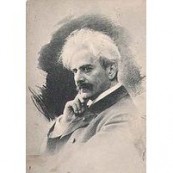
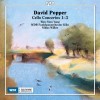
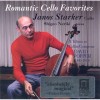
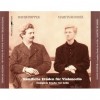
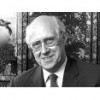


![Russian legends - Daniel Shafran [7 CD]](http://static.classicalm.com/repository/collection-cover/small/277-img1319146356180506.jpg)
